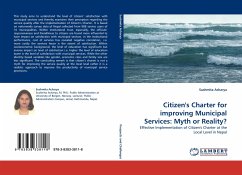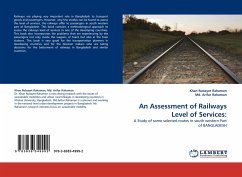This study aims to understand the level of citizens' satisfaction with municipal services and thereby examines their perception regarding the service quality after the implementation of Citizen's Charter. It is based on nationwide survey data of Nepal collected from 988 service users of 10 municipalities. Within institutional trust, especially, the officials' responsiveness and friendliness to citizens are found more influential to have impact on satisfaction with municipal services. In the institutional performance, cost of services has revealed negative correlation, .i.e. more costly the services lesser is the extent of satisfaction. Within socioeconomic background, the level of education has significant but inverse impact on level of satisfaction i.e. higher the level of education lower is the level of satisfaction with municipal services. While the other identity based variables like gender, economic class and family size are less significant. The concluding remark is that citizen's charter is not a myth for improving the service quality at the local level rather it is a realistic approach to improve the productivity of municipal service provisions.
Bitte wählen Sie Ihr Anliegen aus.
Rechnungen
Retourenschein anfordern
Bestellstatus
Storno








